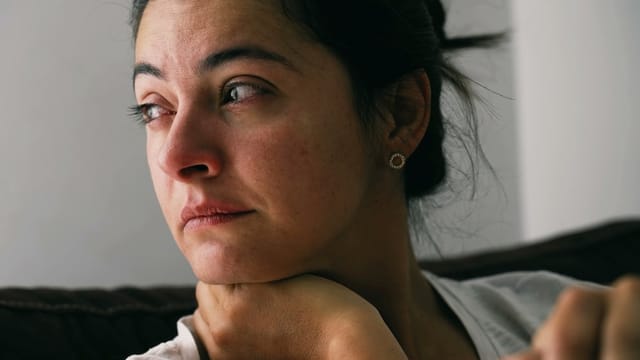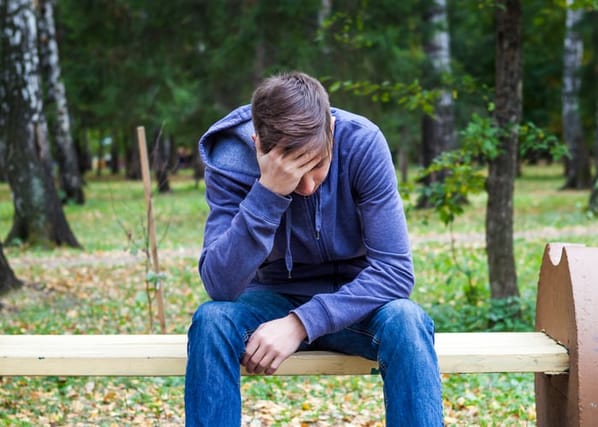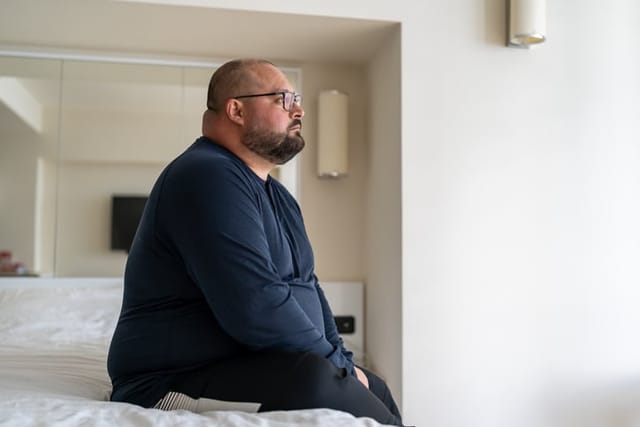Childhood bullying is often brushed off as a normal part of growing up – kids being kids, right? Wrong! Bullying can have serious, long-term consequences that reach well into adulthood. Here are just a few of the things adults who were tortured as kids may face if they don’t adequately address their experiences with mental health professionals.
1. Wrecked mental health

Kids who are bullied are way more likely to struggle with depression, anxiety, panic disorders, and even PTSD later in life. The constant stress and trauma mess with their brains for the long haul. These mental health struggles can interfere with relationships, careers, and overall quality of life. Seeking therapy to process these experiences and learn coping mechanisms is a must and can really help.
You may also like: 15 types of people you should never trust in life
2. Inability to trust

Bullying destroys a kid’s sense of trust, not just in their peers, but in the world itself. This can lead to difficulties forming healthy relationships and an always-on-guard mentality as adults. Rebuilding trust takes time and patience. Finding safe, supportive people is vital for starting to heal.
3. Feelings of worthlessness

Bullies love to tear down confidence. Years of being told you’re ugly, stupid, or unlovable can create a deep-rooted sense of worthlessness that’s incredibly hard to shake. Challenging these negative beliefs through therapy or self-help practices is crucial. Surrounding yourself with people who value and uplift you is also key.
You may also like: 15 clever phrases that instantly humble an arrogant person
4. Loneliness

Victims of bullying often isolate themselves for protection. This can become a pattern, making it hard to connect with other people and build a healthy social support network as an adult. Learning to step out of isolation, even in small ways, is important. Joining groups or activities based on shared interests helps foster new connections.
5. Lack of formal education

Bullied kids might struggle academically, skip school, or drop out altogether. This limits their future career options and overall potential. If school was traumatic, finding alternative learning paths or returning to education in a supportive environment as an adult can be empowering.
You may also like: The top 10 reasons men break up with women, as told by a guy
6. Always being defensive and on alert

Constant bullying teaches your brain to be on alert, defensive, and quick to anger. This can lead to aggression issues or trouble managing emotions later on. Anger management techniques, mindfulness practices, or therapy can help regulate these intense emotions. Finding healthy outlets for anger, like exercise, is important as well.
7. Regularly feeling unwell

The stress of bullying isn’t just mental. It can cause physical problems like headaches, stomachaches, sleep issues, and a weakened immune system – effects that might stick around. Prioritizing self-care, including proper sleep, nutrition, and stress-reducing activities, is essential. Talking to a doctor about lingering physical symptoms is also important.
You may also like: People Who Had Unhappy Childhoods Usually Develop These Traits
8. Self-Harm and Suicidal Thoughts

This is a heavy one, but sadly true. Bullied kids are more likely to contemplate or attempt suicide, even years later. It’s a desperate cry for escape from that relentless pain. If you’re struggling with these thoughts, please reach out for help immediately – there are crisis hotlines, online resources, and therapists ready to support you.
9. Substance Abuse as an Escape

To cope with the pain, victims of bullying sometimes turn to drugs or alcohol as an escape. This is a dangerous path that creates even more issues. There are healthier ways to manage difficult emotions. Seeking addiction treatment and support groups can help people break free from this destructive pattern.
You may also like: How A Narcissist Acts When You Start Seeing Through Their BS
10. Feeling that the world is dangerous

Childhood bullying can create a lasting perception that the world is unsafe and people are inherently unkind. This makes it challenging to build a positive outlook on life. It takes time to realize there are good people in the world. Therapy can help challenge these negative beliefs and rebuild a sense of safety.
11. Job Struggles

Insecurity, poor social skills, and difficulty handling authority (often figures of power like bullies) can make holding a job – let alone building a successful career – incredibly difficult. Addressing social anxiety and building self-confidence are important. Vocational counseling or career coaching might also be helpful.
You may also like: 15 Things To Keep To Yourself Because They’re Nobody’s Business But Yours
12. Toxic Relationship Patterns

People who were bullied may find themselves in unhealthy relationships as adults, either re-enacting the role of victim or becoming the bully themselves. Breaking this cycle takes serious work. Therapy can help identify these patterns and empower people to build healthier relationships based on respect.
13. Poor physical health

Increased risk of heart disease, chronic pain, and other health conditions later in life have been linked to childhood bullying. The toxic stress messes with your body in long-lasting ways. Regular medical check-ups and prioritizing your physical well-being become extremely important.
You may also like: How A Narcissist Acts When They Can’t Fool You Anymore
14. Anger issues

Bullied kids sometimes carry a simmering, repressed anger that might erupt in unhealthy ways as adults. Anger management or therapy can help process those feelings safely. Finding healthy ways to express anger, like physical exercise or creative outlets, is also really important.
15. Struggles with parenting

Adults who experienced bullying might struggle with their own kids’ behavior. There’s often fear, overprotection, or unresolved trauma that can complicate parenting. Parenting classes, support groups, or family therapy can provide tools and strategies to navigate these challenges.
You may also like: 16 Signs You Didn’t Get Enough Affection As A Child
Know that you deserve better, and that help is out there.

Childhood bullying can shape your self-image and trajectory in life, but it doesn’t define you. With support and healing, it’s possible to overcome this and build a fulfilling life. You’re so much stronger than you realize, and you’re not alone.
If you’re struggling with the long-term effects of bullying, you are NOT alone. Therapy, support groups, and online resources can be lifelines. Don’t hesitate to reach out and start reclaiming your power. There is hope, and there is healing.
Enjoy this piece? Give it a like and follow Bolde on MSN for more!



